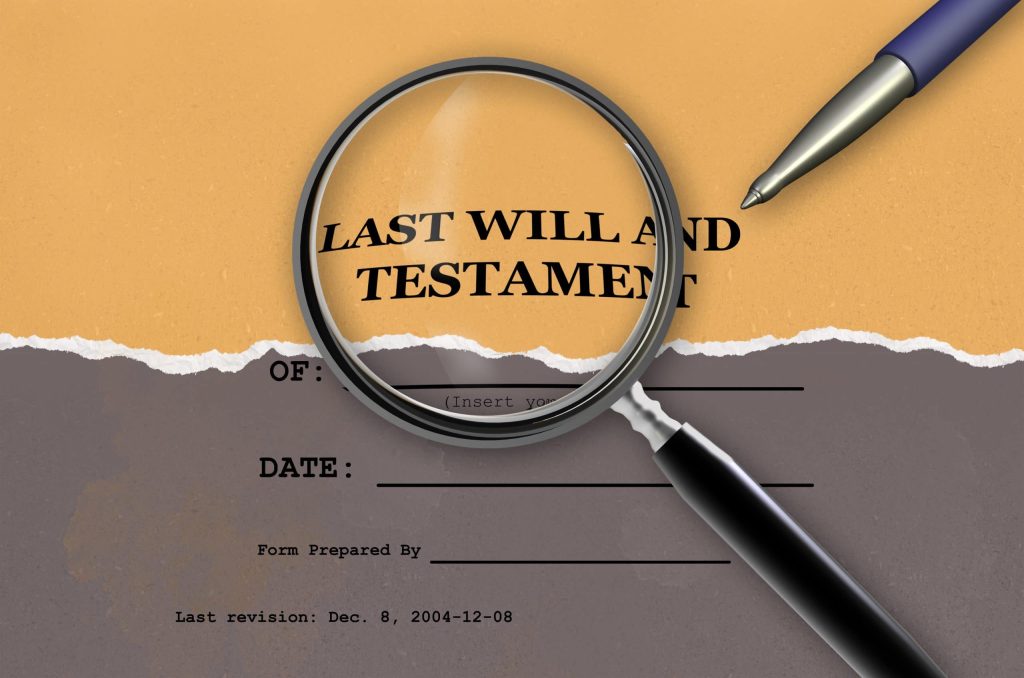MARCH 19, 2012 VOLUME 19 NUMBER 11
Can a person under guardianship sign a new will? After all, in order to have a guardian appointed (in Arizona, at least), the court must first have found that the person is impaired by a mental disorder (or some other cause) and that he or she “lacks sufficient understanding or capacity to make or communicate responsible decisions concerning his person.”
This is a question we have addressed before, in discussing a 1996 Mississippi case. It comes up from time to time and in different circumstances. The Mississippi case described earlier, for instance, involved a conservatorship rather than a guardianship proceeding, though the principles are the same in either circumstance. The bottom line, as described in our earlier article, is that a person may be able to sign a new will in Arizona — even if they have been determined to be incapacitated, or in need of (financial) protection.
A recent Arizona Court of Appeals decision revisited the question, with a slight twist. John Bartlett (not his real name) had been the subject of both a guardianship and a conservatorship order since 2004. On May 28, 2008, the probate court held a hearing on his request to terminate his guardianship. He maintained that he no longer needed a guardian, but the probate judge decided that he continued to be incapacitated — that is, that he was still unable to make responsible decisions regarding his own care.
That very same day John signed a new will. In it, he disinherited his daughter (his only child) and left his entire estate to his grandson. The document also revoked an earlier will, signed before the guardianship proceedings were begun, which had named his daughter as his personal representative and left his entire estate to her.
When John died a few months after signing his new will, a probate court dispute ensued regarding which document was valid. Did John have the capacity to revoke his old will, and to disinherit his daughter? Both wills were submitted for consideration, and the probate court found the new will to be valid and admitted it to probate.
When the personal representative of the estate filed a final report with the court, John’s daughter objected that her challenge to the new will (and to a trust signed the same day) had not been resolved. The estate’s personal representative disagreed, and filed motions to strike the daughter’s pleadings, enter summary judgment in favor of the later will, and close the estate. In a series of hearings, the probate court granted all of those requests.
The Arizona Court of Appeals disagreed. Although John’s daughter had not put on any evidence — indeed, she had not even filed any pleadings expressly objecting to the summary judgment request — the probate court should have been on notice that there was substantial evidence of John’s incapacity. The fact of a guardianship proceeding was enough to raise doubts about his ability to sign a new will, and summary judgment — entered without taking any evidence — was improper, according to the appellate judges.
The Court of Appeals takes pains to make clear that it is not holding that John’s will is invalid, or that people under guardianship can not sign new wills. In fact, the mere existence of a guardianship does not (in Arizona, at least) even create a presumption of incapacity to sign a will. But the existence of the guardianship proceeding, and especially the guardianship finding on the very day John signed his new will, should have alerted the probate court that there was some evidence in support of a challenge to that will. Estate of Blackford, March 13, 2012 (an unreported decision, but still a correct expression of Arizona law).




2 Responses
Alabama, which seems to have a preference for adopting Arizona laws, has the Uniform Guardianship and protective proceedings Act and has the same standard for Guardianship (lacks capacity to make or communicate responsible decisions). The standard for a Conservatorship is very different and requires only a finding that the person is “in need of protection” which can found in cases of illiteracy, intemperance or even physical incapacity. The standard for making a will is that the testator must know the objects of his bounty, understand what is in his estate, understand the gravity of the act he is about to undertake and know how he wants his property to pass. The validity of the will is determined based upon the facts at the time of execution. One might imagine a number of cases in which a person in need of protection might meet the testamentary standard. However, a person who is declared to lack sufficient capacity to make or communicate responsible decisions would have great difficulty in meeting the testamentary standard. Susceptibility to undue influence is another topic, but usually a ground for a will contest and the existence of a conservatorship is quite relevant to that issue.
I agree completely with Sidney. While the standard for mental capacity in most all jurisdictions is very similar regarding ability to execute a valid will, the standard for guardianship is different from state to state, so while a person without sufficient mental capacity to make a valid will may essentially always be a person who needs a guardian, the reverse is not true.